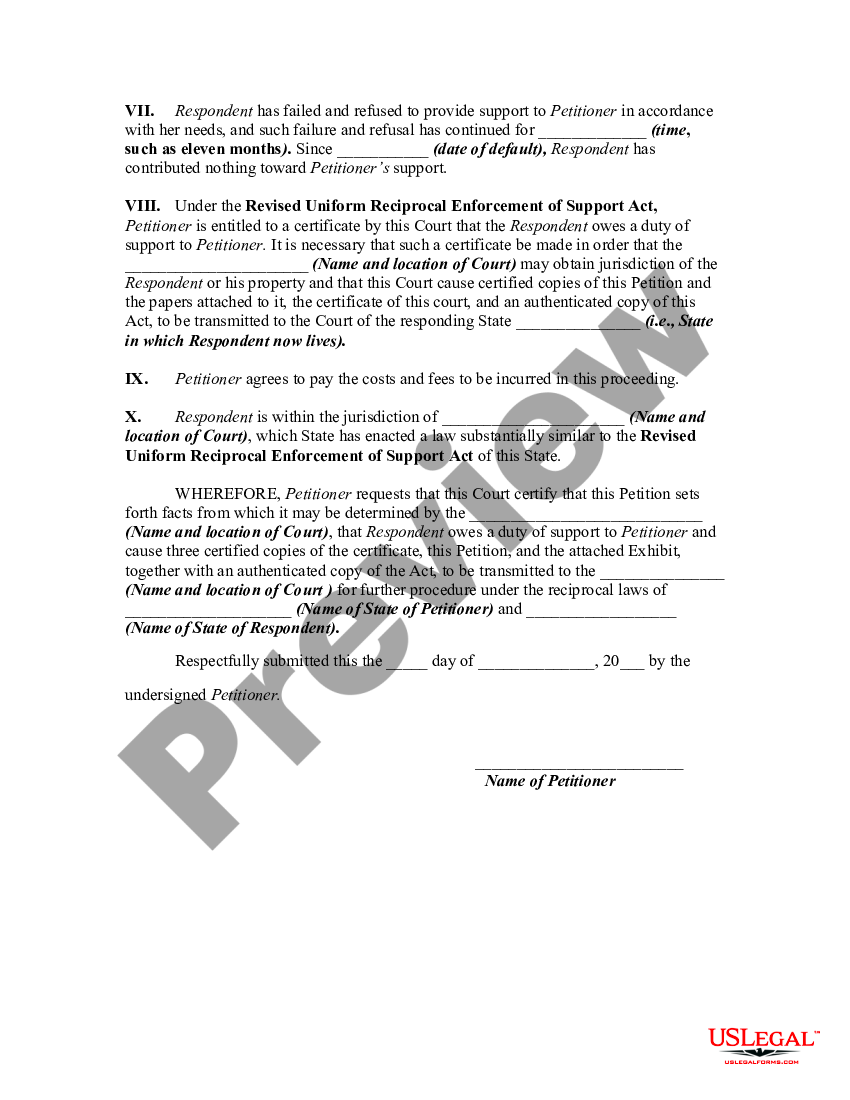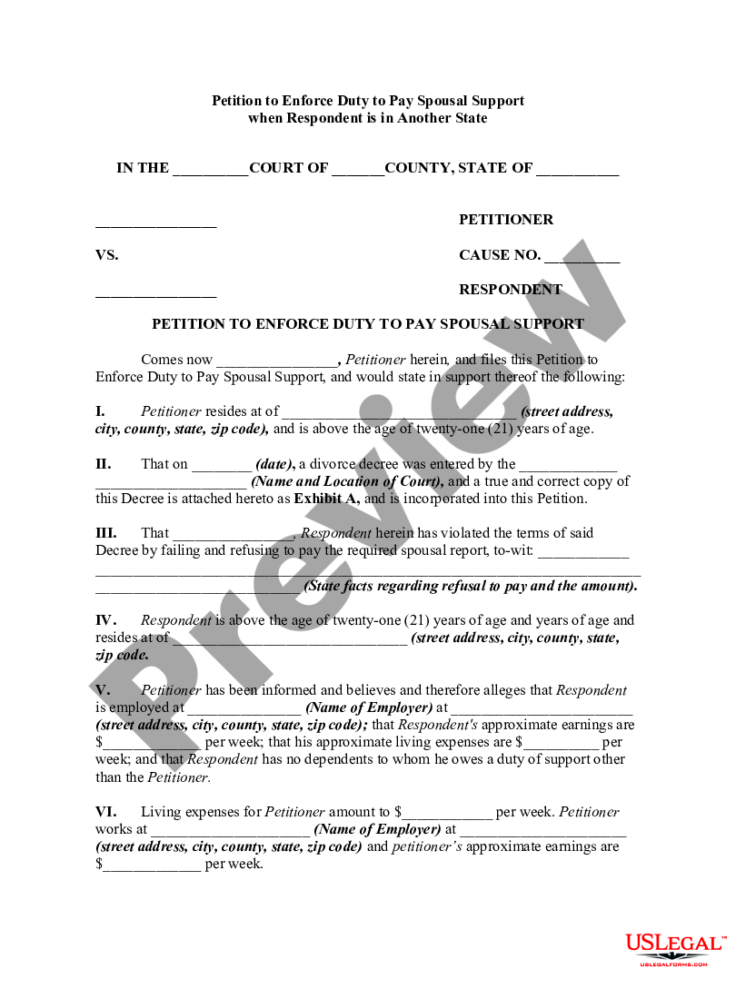Enforcement of Spousal Support in Arkansas
Spousal support, also known as alimony, is a financial obligation one spouse may have to the other after a divorce. In Arkansas, the goal of spousal support is to ensure that the financially dependent spouse can maintain a reasonable standard of living after the marriage ends. However, it’s not automatically granted in every case, and courts typically assess various factors to determine whether support is necessary.
While spousal support can be temporary or permanent, it’s important to understand how it works in Arkansas to ensure your rights are protected, whether you’re seeking support or being asked to provide it.
Legal Grounds for Spousal Support Enforcement

If a spouse fails to make court-ordered spousal support payments, the other party has the right to take legal action to enforce the order. Arkansas law provides several legal grounds for spousal support enforcement, ensuring that the receiving spouse gets what they are owed. Some of the common legal grounds include:
- Contempt of Court: Failure to follow a court-ordered payment is a violation, and the payer can be held in contempt.
- Income Withholding: The court may order wage garnishment, directly taking spousal support from the paying spouse’s income.
- Seizure of Property: In some cases, the court can authorize the seizure of assets to cover unpaid support.
- Filing a Lien: A lien may be placed on the non-paying spouse’s property, which must be settled before selling the asset.
Understanding these legal grounds is essential for anyone dealing with spousal support issues in Arkansas, as they provide a clear path for enforcing orders.
Filing a Motion to Enforce Spousal Support
If your former spouse is not making spousal support payments as required, filing a motion to enforce is a crucial step. Here’s a general process:
- Consult with an attorney: It’s highly recommended to seek legal advice before filing any motion to ensure the process goes smoothly.
- Prepare the necessary documents: Your attorney will help you gather evidence such as missed payments, the original spousal support order, and proof of communication efforts.
- File the motion with the court: Your attorney will file a formal motion to request enforcement of the spousal support order.
- Attend the hearing: Both parties will likely be required to attend a court hearing. The judge will review the case and determine what enforcement actions are appropriate.
Filing a motion can lead to immediate action, including wage garnishment or other legal remedies. The court prioritizes enforcing these orders to ensure that the receiving spouse is fairly compensated.
Role of the Arkansas Courts in Support Enforcement
The Arkansas courts play a critical role in ensuring that spousal support orders are followed. Once an order is established, the courts have the authority to enforce it if one party fails to comply. This process involves a series of legal steps that help the receiving spouse get the support they deserve. Without court involvement, it would be difficult to hold the paying spouse accountable for missed payments.
The courts can enforce spousal support through various legal mechanisms, including:
- Issuing a Contempt Order: If the paying spouse ignores a support order, the court can find them in contempt, which may lead to fines or even jail time.
- Income Withholding: The courts can order automatic deductions from the paying spouse’s wages to ensure support payments are made regularly.
- Asset Seizure: In extreme cases, the court can authorize the seizure of the paying spouse’s assets, such as bank accounts or property, to cover the owed support.
- Driver’s License Suspension: Courts in Arkansas can suspend the driver’s license of a non-paying spouse as an enforcement tool.
The role of the courts is essential in enforcing support orders and ensuring that both parties adhere to the terms set by the judge.
Penalties for Non-Payment of Spousal Support
Failing to pay spousal support can lead to serious legal consequences in Arkansas. The courts do not take missed payments lightly, and penalties can range from financial fines to more severe actions depending on the severity of the violation. If you or your former spouse are struggling with spousal support enforcement, it’s crucial to understand the potential penalties involved.
Common penalties for non-payment include:
- Wage Garnishment: Courts can order an automatic deduction from the paying spouse’s income to collect missed payments.
- Fines and Interest: The courts may impose financial penalties, including interest on unpaid support, which can accumulate over time.
- Seizure of Property: If the non-paying spouse owns valuable assets, the court can order the seizure and sale of these assets to satisfy the debt.
- Driver’s License Suspension: Arkansas courts can suspend the non-paying spouse’s driver’s license as a form of punishment until the payments are made.
- Jail Time: In extreme cases, particularly for chronic non-payers, the court may order jail time as a last resort.
The penalties can escalate quickly if payments continue to be missed, so it’s essential to take immediate action if you are facing issues with spousal support.
Modifying Spousal Support Orders in Arkansas
Life circumstances can change, and when they do, it may be necessary to modify spousal support orders. Arkansas courts allow modifications when a significant change in circumstances occurs, such as job loss, illness, or a change in financial status. Either spouse can request a modification if they believe the current support order is no longer fair or appropriate.
To modify spousal support in Arkansas, the following steps are typically involved:
- Filing a petition for modification: The spouse seeking the change must submit a formal request to the court, explaining why the modification is necessary.
- Providing evidence of changed circumstances: The requesting spouse must present documentation, such as proof of income loss, increased medical expenses, or changes in living conditions.
- Attending a court hearing: The court will schedule a hearing where both parties can present their cases, and a judge will decide whether the modification is justified.
- Receiving a new order: If the court agrees that the circumstances warrant a change, a new support order will be issued, reflecting the updated terms.
It’s essential to act quickly if you believe your spousal support order needs to be modified, as any missed payments or overpayments will continue until the court issues a new order.
How an Attorney Can Help in Support Enforcement
When it comes to enforcing spousal support, the legal process can be complex and frustrating. Having an attorney on your side can make a huge difference in ensuring that the support you are owed is properly enforced. Attorneys understand the legal steps required and can navigate the court system on your behalf, saving you time and stress.
Here are several ways an attorney can assist with spousal support enforcement:
- Filing a Motion to Enforce: An attorney can help you prepare and file the necessary paperwork with the court, ensuring that all legal requirements are met.
- Gathering Evidence: Your lawyer will collect important documents, such as payment records and communications, to strengthen your case.
- Representing You in Court: If a hearing is required, your attorney will present your case to the judge, advocating for enforcement actions like wage garnishment or property seizure.
- Negotiating Settlements: In some cases, an attorney may be able to negotiate with the other party, resolving the issue without going to court.
- Handling Contempt of Court Proceedings: If the non-paying spouse continues to avoid payments, an attorney can initiate contempt of court actions, which may lead to more severe penalties.
Having legal representation ensures that you are taking the right steps, and your rights are fully protected throughout the process.
FAQs about Spousal Support Enforcement in Arkansas
Spousal support enforcement can raise many questions, especially for those unfamiliar with the legal process. Below are some common questions about enforcing spousal support in Arkansas:
- What can I do if my ex-spouse refuses to pay support? You can file a motion with the court to enforce the order. The court may take actions like wage garnishment or even jail time for non-payment.
- Can spousal support be modified? Yes, if there is a significant change in circumstances, either party can request a modification from the court.
- How long does the enforcement process take? The timeline can vary depending on the complexity of the case and the court’s schedule, but filing a motion typically initiates action within weeks.
- Can unpaid spousal support be collected after years? Yes, unpaid spousal support remains a legal obligation and can be enforced even after several years, although it may require legal action.
- Is there a way to avoid going to court? In some cases, attorneys can help negotiate a resolution outside of court, but formal enforcement usually involves legal proceedings.
Conclusion on Spousal Support Enforcement
Spousal support enforcement in Arkansas is crucial for ensuring that divorced spouses receive the financial support they are legally entitled to. Whether you’re the recipient or the payer, understanding the enforcement process can help you navigate the challenges that may arise after a divorce. With the help of the Arkansas courts and a skilled attorney, you can take the necessary steps to ensure compliance with spousal support orders.
If you’re facing difficulties with enforcement, remember that legal options are available, from wage garnishment to more severe penalties like asset seizure and jail time for chronic non-payment. Seeking legal assistance and understanding your rights can make the process smoother, protecting your financial future.


